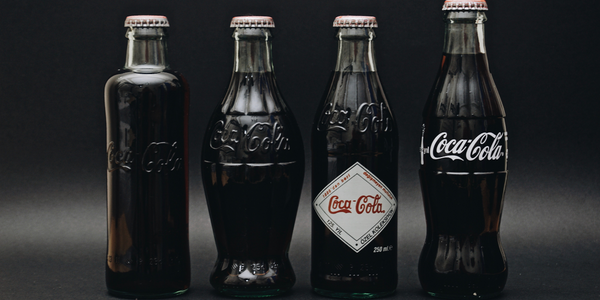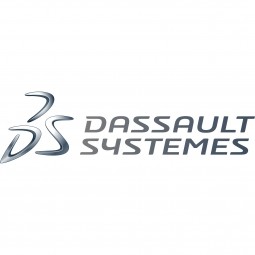下载PDF
Tetra Pak Consumer Package Goods & Retail Case Study
技术
- 分析与建模 - 数字孪生/模拟
适用行业
- 消费品
- 食品与饮料
适用功能
- 产品研发
- 质量保证
用例
- 质量预测分析
- 虚拟原型与产品测试
服务
- 软件设计与工程服务
挑战
Tetra Pak, the world's largest supplier of aseptic packaging, was faced with the challenge of ensuring the integrity of aseptic packaging by modeling the complex fluid-structure interaction of the filling and sealing process. This included the packages, liquid, and machines. The company wanted to control the process completely, which required an in-depth knowledge of the loads and forces involved. The packaging process was designed to be as simple as possible, but this simplicity posed tremendous engineering challenges. The packaging material was very thin and flexible, which made for large deformations under pressure changes. The cross-section of the tube rapidly changed from circular cross-section to fully closed when folded. Most importantly, there was a strong fluid-structure interaction to be modeled that had to take into account the changing pressure waves in the fluid and their effects on the packaging material.
关于客户
Tetra Pak is the world's largest supplier of aseptic packaging. The company was founded by Dr. Ruben Rausing in Lund, Sweden in 1951 with a simple tenet: 'A package should save more than it costs.' Rausing invented the packaging technology that still forms the basis for much of Tetra Pak's business. Currently, the company distributes more than 387 million packages per day in over 150 countries, for a total of more than 141 billion delivered worldwide in 2008. Tetra Pak is committed to providing the lowest-cost packages possible. The company's vision is to commit to making food safe and available everywhere. This commitment extends to developing countries lacking adequate power grids, cold chains, or transportation infrastructure.
解决方案
Tetra Pak chose Abaqus to evaluate the complexities of the packaging process. The company had previously used Abaqus for structural analyses, but this was the first time that Tetra Pak engineers simulated the dynamics of the fluid-structure interaction during packaging. The resulting analysis generated a greater understanding of the packaging process and provided a means to model it earlier in the design stage. The engineers selected the Tetra Fino Aseptic 500 ml, TFA 500s milk package for their initial trial analysis. The model for analysis included the composite packaging material, the packaged fluid, the flotation device that rests on top of the fluid surface, the system that folds the packaging material, and the pressure flange that controls pressure waves inside the tube. The flexible packaging material was modeled with shell elements calibrated to represent the laminated material as though it were homogenous, which reduced the computation time for the analysis.
运营影响
数量效益
相关案例.
.png)
Case Study
Improving Vending Machine Profitability with the Internet of Things (IoT)
The vending industry is undergoing a sea change, taking advantage of new technologies to go beyond just delivering snacks to creating a new retail location. Intelligent vending machines can be found in many public locations as well as company facilities, selling different types of goods and services, including even computer accessories, gold bars, tickets, and office supplies. With increasing sophistication, they may also provide time- and location-based data pertaining to sales, inventory, and customer preferences. But at the end of the day, vending machine operators know greater profitability is driven by higher sales and lower operating costs.

Case Study
The Kellogg Company
Kellogg keeps a close eye on its trade spend, analyzing large volumes of data and running complex simulations to predict which promotional activities will be the most effective. Kellogg needed to decrease the trade spend but its traditional relational database on premises could not keep up with the pace of demand.

Case Study
HEINEKEN Uses the Cloud to Reach 10.5 Million Consumers
For 2012 campaign, the Bond promotion, it planned to launch the campaign at the same time everywhere on the planet. That created unprecedented challenges for HEINEKEN—nowhere more so than in its technology operation. The primary digital content for the campaign was a 100-megabyte movie that had to play flawlessly for millions of viewers worldwide. After all, Bond never fails. No one was going to tolerate a technology failure that might bruise his brand.Previously, HEINEKEN had supported digital media at its outsourced datacenter. But that datacenter lacked the computing resources HEINEKEN needed, and building them—especially to support peak traffic that would total millions of simultaneous hits—would have been both time-consuming and expensive. Nor would it have provided the geographic reach that HEINEKEN needed to minimize latency worldwide.

Case Study
Energy Management System at Sugar Industry
The company wanted to use the information from the system to claim under the renewable energy certificate scheme. The benefit to the company under the renewable energy certificates is Rs 75 million a year. To enable the above, an end-to-end solution for load monitoring, consumption monitoring, online data monitoring, automatic meter data acquisition which can be exported to SAP and other applications is required.

Case Study
Coca Cola Swaziland Conco Case Study
Coco Cola Swaziland, South Africa would like to find a solution that would enable the following results: - Reduce energy consumption by 20% in one year. - Formulate a series of strategic initiatives that would enlist the commitment of corporate management and create employee awareness while helping meet departmental targets and investing in tools that assist with energy management. - Formulate a series of tactical initiatives that would optimize energy usage on the shop floor. These would include charging forklifts and running cold rooms only during off-peak periods, running the dust extractors only during working hours and basing lights and air-conditioning on someone’s presence. - Increase visibility into the factory and other processes. - Enable limited, non-intrusive control functions for certain processes.






